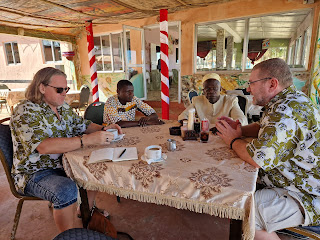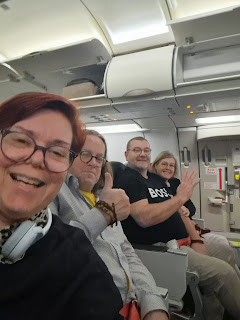Today we are celebrating the graduation of our teacher training program. The two-year teacher training program has come to an end and we are able to distribute certificates for the IT Basic section as well. The certificates for the pedagogical skills module were distributed a year ago.
In total, 15 teachers have participated in the training. There has been some turnover in the group due to changes in employment. The journey of teacher training has been rewarding and educational on both sides.
In Finland, we can generally rely on the functionality of telecommunications connections, but in Gambian conditions, the teacher should have a plan B, C, and D.
The language used and the instructions given must be very clear. Things should be presented both orally and in writing. It helps a lot if you can demonstrate the subject being taught or alternatively show it on video. This will stimulate discussion and make it easier to achieve a common understanding.
Effective communication is very important. In Finland, a teacher can to some extent act by "staring at the screen", but in this environment you will not get people to listen unless the communication between people is active and lively.
Overall, we teachers are also very grateful to the Rotarians for this opportunity to work with Gambian colleagues and be involved in the development of the education sector.



.jpeg)
.jpeg)
.jpeg)
.jpeg)




.jpg)









